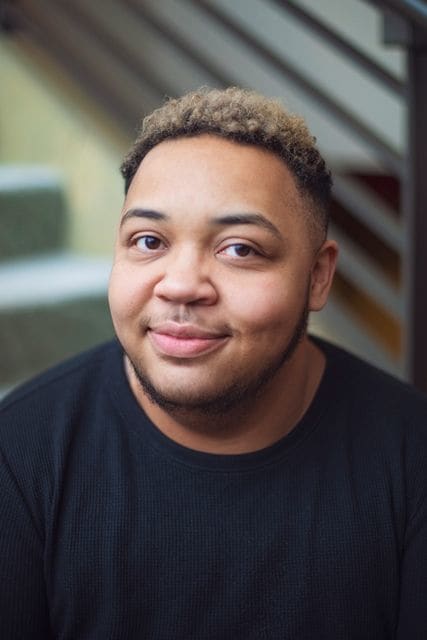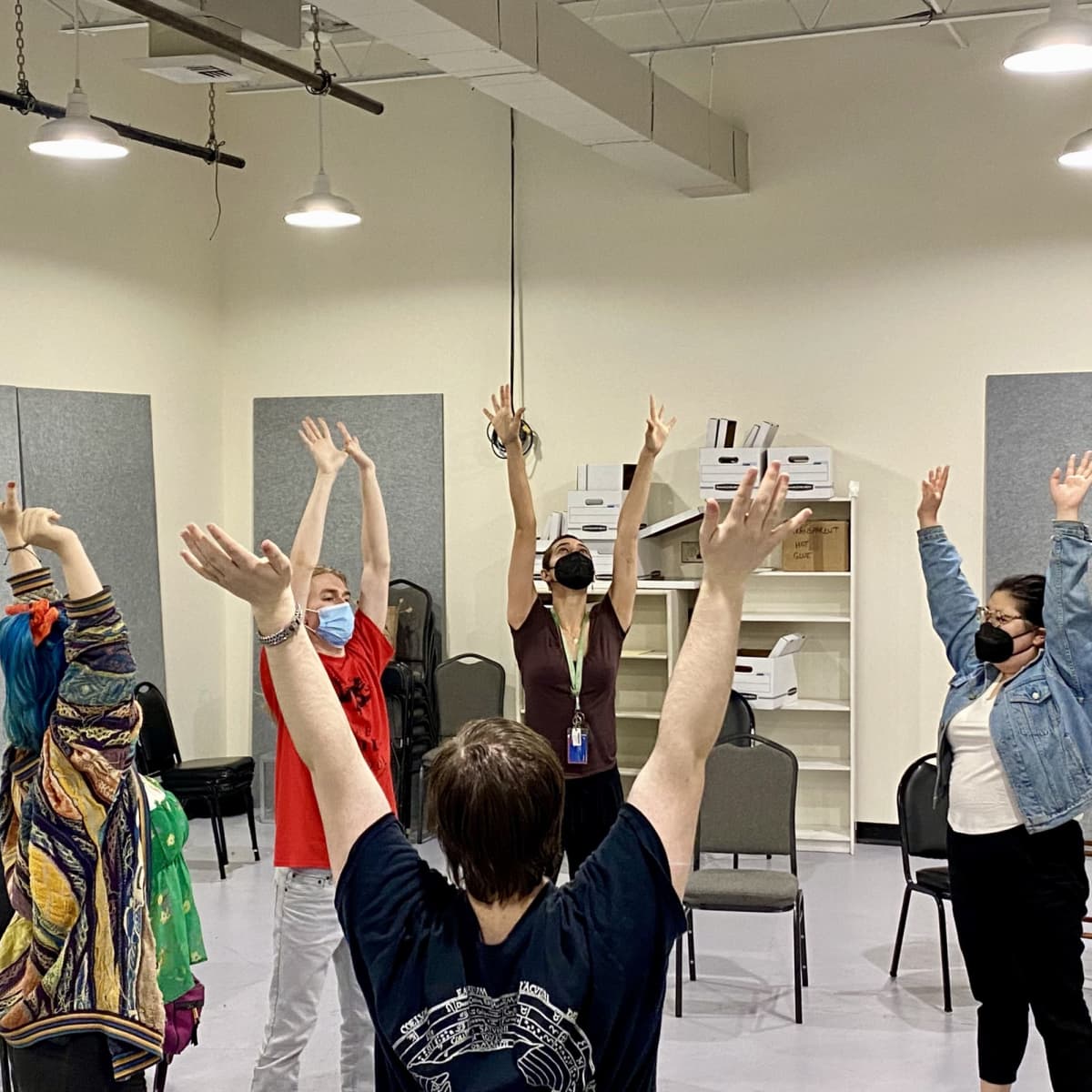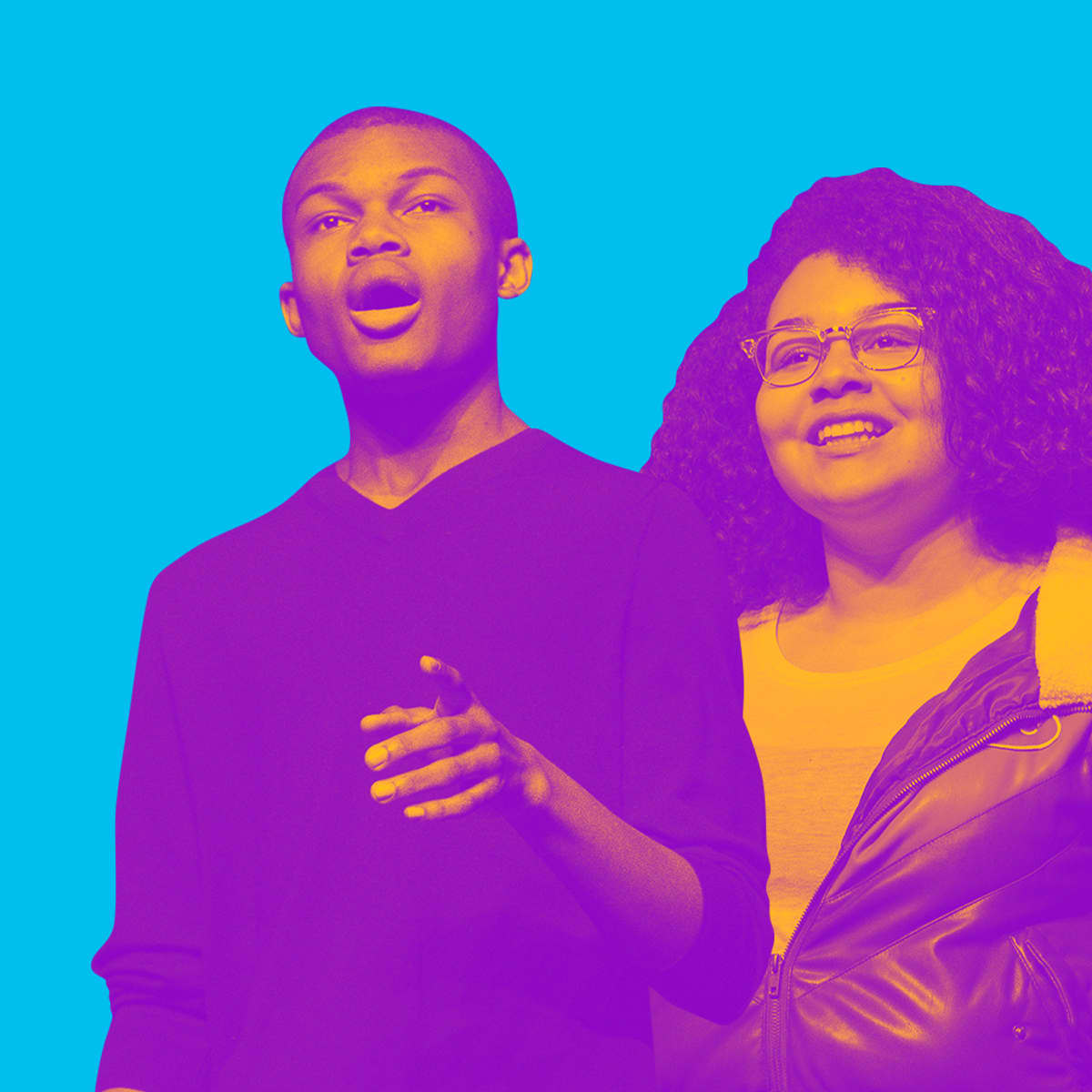INTERVIEW
The Challenges and Joys of Virtual Teaching
We sat down (well, virtually!) with Youth Engagement Manager Alex Lee Reed to talk about the experience of learning to teach theater online.

Seattle Rep: What classes have you been teaching, and how did you select these particular classes right now?
Alex Lee Reed: Not long after we had to close Seattle Rep’s doors due to COVID-19, we had a virtual happy hour with educators and talked about their transition to online learning. That sparked the idea of doing theater classes online. I held a focus group with some August Wilson Monologue Competition students and, based on their feedback, decided to offer a series of classes that could build on each other. The first one, Who I am Meets Who I’ll Be, was an introduction to acting. We did a lot of self-reflection exercises and character analysis, and everyone was assigned a scene from a play. Then I organized Unpacking Emotion, which was really focused on the psychology of emotion and creating more nuanced performances. We experimented with piloting a series on physical theater, with one of our teaching artists creating different body movement classes. Based on student feedback from our first round of online offerings, we’re also currently in the process of putting together some pre-recorded online body and voice exercises that people can engage with. So we’re experimenting with different forms.
I’m personally most excited about our recent Collective Playwriting class – a four-week class that ties together every area of theater. The focus of the class was on writing a play from beginning to end, including workshopping, casting, and directing. Many of the students in the class had never really delved into playwriting before, and were just floored to see how their prior knowledge as young actors and performers brought a sort of expertise to the room that they didn’t know they had. The final project was a live-streamed reading for an invited audience, cast with young actors from across the country.
We’re trying to offer youth a variety of options, and to create program models that we can offer to schools as they transition to primarily remote learning this coming school year. We’re creating new tools and teaching methods to fill the void and inspire youth in a constantly changing time. I’ve been hearing that, if schools do resume in person this fall, they could be really STEM (Science, Technology, Engineering, Mathematics) focused. In that world, I think it is even more important for Seattle Rep as a civic institution to be able to offer schools viable online arts programming.
SR: What is the biggest difference in teaching theater online versus teaching in person? What have you had to adjust or rethink?
ALR: We have had to rethink almost everything. There is so much we take for granted during in-person classes, especially the energy in the room—but on the internet, “energy” does not just happen. If I’m not engaging them effectively, the students have five other tabs open on their computers! There are so many distractions and outside factors to consider. How long can they sit still and listen to someone talk online? How do we take breaks?
The most obvious thing is that theater is inherently physical, so if theater is going to exist digitally for the foreseeable future, then acting will be different. I’m trying to figure out what that line is—am I teaching them skills for the stage or skills for the screen? When acting for the screen, it is more nuanced because you don’t need to fill an 850-seat theater. And don’t even get me started on stage directions! Do we say “upscreen” and “downscreen” now? Everything basic is new again.
SR: Why do you think engaging youth in online theater classes is important right now?
ALR: Theater offers young adults a place to be, a place to discover themselves, and a place to work out their problems. All of that is still true online, and especially now that social distancing means youth have so few other options. I actually got a text from a parent a couple days after their child’s class had ended, saying “Thank you so much. It’s been a long time since he has been able to be in an acting class and have a place to connect with like-minded peers.” We are also getting a lot of students who we have never engaged with before, because they can sign up on their own and don’t have to worry about transportation logistics or conflicts with other activities.
SR: Is there anything you have learned from your online students that has stuck with you?
ALR: I’m learning more and more that it’s not only okay, but actually necessary to take my cues from the students that I’m working with at any given moment. The youth don’t care so much about how awkward and strange this new online world is—they are just happy to have a place to be. Just like all of us adults, they want to figure out how to function in the virtual environment, to create a feeling of community and a sense that we are still in this together.
SR: How does moving youth engagement online fit into Seattle Rep’s vision of “theater at the heart of public life” in this current climate?
ALR: It’s a way that we can show up in and for the community, especially when we can’t bring people into the theater. There aren’t a lot of opportunities for free classes for youth, which has always been an issue, so we are actively filling a need. We’re creating and maintaining relationships, and building a sense of community. For parents who are still working, we’re providing a free service with something enriching for their children to do. But we’re also listening closely to what the youth want to learn. Just because they are youth, doesn’t mean they aren’t people who have wants and needs. I think it is sometimes really easy to forget that.
Hear more from Alex about our Youth Engagement programming:





